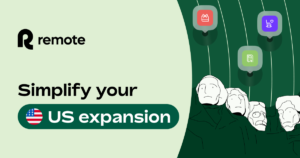The Future of Remote Tech Education: What Turing College is Doing Differently

In recent years, the landscape of education has undergone a seismic shift, particularly in the realm of technology. The rise of remote learning has democratized access to education, allowing individuals from diverse backgrounds to pursue careers in high-demand fields like data science, machine learning, and software engineering. Amidst this transformation, Turing College has emerged as a noteworthy player, redefining how tech education is delivered and experienced. This article explores the innovative approaches that set Turing College apart in the rapidly evolving field of remote tech education.
The Shift Toward Remote Learning
The COVID-19 pandemic accelerated a trend that had been simmering for years: the move toward online education. Traditional universities faced unprecedented challenges as they transitioned to virtual formats. While many institutions struggled to adapt, Turing College embraced the remote learning model from its inception. This proactive approach allowed the college to create an engaging and effective learning environment tailored to the needs of modern students.
Personalized Learning Paths
One of the standout features of Turing College is its commitment to personalized learning paths. Unlike the one-size-fits-all approach of many traditional programs, Turing College tailors its curriculum to meet the unique needs and goals of each student. Upon enrollment, learners undergo an assessment that helps identify their strengths, weaknesses, and career aspirations. Based on this information, they receive a customized learning plan that emphasizes the skills and knowledge areas most relevant to their chosen field.
This personalized approach not only enhances student engagement but also increases retention rates. By providing a curriculum that resonates with individual students, Turing College empowers them to take ownership of their learning journey, making it more likely they will persist through challenges and reach their educational goals.
Also read: Maximize Your Property Management Efficiency with Buildium
Project-Based Learning
In the world of tech, theoretical knowledge is only half the battle; practical skills are essential for success. Turing College adopts a project-based learning model that allows students to work on real-world projects throughout their courses. This hands-on approach helps students apply theoretical concepts in practical scenarios, fostering a deeper understanding of the subject matter.
Projects often mimic the kind of work students will encounter in their future careers. For instance, aspiring data scientists might analyze real datasets to derive insights, while software engineering students could develop applications to solve specific problems. This experiential learning not only equips students with practical skills but also provides them with a portfolio of work to showcase to potential employers, giving them a competitive edge in the job market.
Emphasis on Collaboration and Community
Turing College recognizes that learning doesn’t happen in isolation. The college places a strong emphasis on collaboration, encouraging students to work together on projects and share knowledge. Through group assignments and collaborative tools, learners can engage in discussions, troubleshoot problems, and learn from one another’s experiences.
Additionally, Turing College fosters a sense of community through regular virtual meetups, workshops, and networking events. These opportunities allow students to connect with peers, instructors, and industry professionals, creating a supportive network that extends beyond the classroom. This collaborative environment not only enriches the learning experience but also helps students build valuable relationships that can benefit them throughout their careers.
Industry-Relevant Curriculum
Another key differentiator for Turing College is its focus on industry relevance. The tech landscape is constantly evolving, and it’s crucial for educational programs to stay aligned with current trends and employer expectations. Turing College collaborates closely with industry experts to ensure its curriculum reflects the skills and technologies in demand.
This real-time feedback loop enables the college to quickly adapt its courses to incorporate emerging technologies and practices. For students, this means they are learning the most relevant skills that employers are seeking, increasing their employability upon graduation. Furthermore, the curriculum includes soft skills training, such as communication and teamwork, which are essential for success in any tech-related career.
Mentorship and Support
Recognizing that the transition to a tech career can be daunting, Turing College places a strong emphasis on mentorship and support. Each student is paired with a mentor from the industry who provides guidance, feedback, and encouragement throughout their learning journey. This mentorship relationship is invaluable, offering students insights into the industry, advice on career paths, and assistance in navigating challenges.
In addition to one-on-one mentorship, Turing College provides robust support services, including career coaching, resume workshops, and interview preparation. This holistic approach ensures that students are not only gaining technical knowledge but are also equipped with the tools and confidence needed to successfully enter the job market.
Flexibility and Accessibility
One of the most appealing aspects of Turing College is its commitment to flexibility and accessibility. The online format allows students to learn at their own pace and on their own schedule, making it easier for working professionals and those with other commitments to pursue their education. This flexibility is especially important in the tech field, where individuals may be juggling multiple responsibilities while trying to advance their careers.
Furthermore, Turing College is dedicated to making its programs accessible to a diverse range of students. Financial aid options, scholarships, and a transparent pricing structure are all part of the college’s mission to eliminate barriers to education. This inclusive approach ensures that anyone with the passion and drive to succeed can pursue a career in tech, regardless of their background.
The Road Ahead
As the demand for tech talent continues to grow, the need for innovative educational solutions like Turing College will only increase. By focusing on personalized learning, project-based experiences, community engagement, and industry relevance, Turing College is not just preparing students for the jobs of today, but also for the careers of tomorrow.
The future of remote tech education lies in its ability to adapt and evolve alongside the industry it serves. Turing College’s commitment to continuous improvement, student success, and inclusivity positions it as a leader in this dynamic educational landscape. As we look ahead, Turing College is poised to play a pivotal role in shaping the future of tech education, making it an exciting time to be a part of this transformative journey.
In conclusion, Turing College exemplifies the potential of remote tech education. By blending personalized learning with real-world application, fostering community, and prioritizing industry alignment, it sets a new standard for what online education can achieve. As technology continues to advance, Turing College will undoubtedly remain at the forefront, empowering the next generation of tech innovators.





